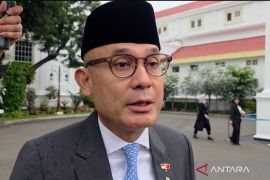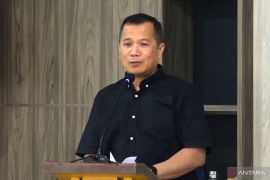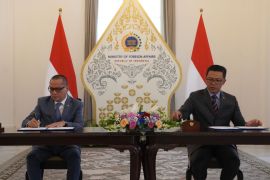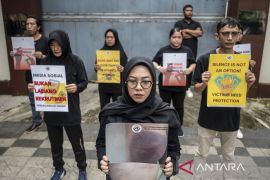"In terms of law, the executions have been done against a vicious crime, namely narcotic drug trafficking. Its implementation has also been carried out according to international law principles," foreign ministry spokesman Arrmanatha Nasir said.
The Indonesian foreign ministry issued the statement in response to protests from the Dutch and Brazilian governments over the execution of their nationals.
The Dutch and Brazilian governments have recalled their ambassadors to Indonesia for consultations with regard to the execution of six drug convicts, including five foreigners, early on Sunday morning.
Arrmanatha noted that the Indonesian foreign ministry received an official notification from the Brazilian government with regard to the recalling of its ambassador to Indonesia on Sunday morning.
"In the evening, we received a similar notification from the Dutch government," he added.
He remarked that the execution was not a diplomatic issue but a law enforcement one.
"The Indonesian foreign ministry expects other countries to see it in a wider sense. It must be seen from the context of law enforcement," he pointed out.
He observed the recalling was the right of the Dutch and Brazilian governments.
"Indonesia still considers the Netherlands and Brazil as friendly countries and will keep its diplomatic channels open," he stressed.
According to him, law enforcement is the right of all countries to fight for and protect their citizens.
"We understand and respect the decisions that have been taken by them. (We, however, have to reiterate) that the executions had been done within the corridor of law enforcement," he said.
The five foreigners executed over drug crimes on Sunday were from the Netherlands, Brazil, Nigeria, Malawi, and Vietnam.
He stated that drug problems are not easy to solve and some of the efforts by the Indonesian government to eradicate its distribution in the country included the establishment of Law Number 35 of 2009 and the National Anti-Narcotic Agency (BNN).
The law, however, cannot be functional unless it is accompanied by the will of law enforcers to implement it firmly, he said.
He lamented that Indonesia has not only become a user country but has turned into a producer country as proven by the detection of a number of factories producing large-scale narcotic drugs in the past few years. ***2***
Reporting by Yuni Arisandy
(T.Y012/H-YH/INE)
EDITED BY INE
(T.SYS/B/KR-BSR/F001) 19-01-2015 15:31:31
Editor: Priyambodo RH
Copyright © ANTARA 2015











